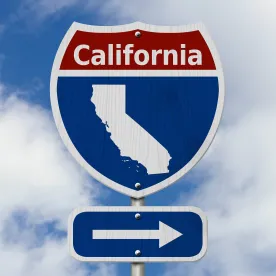As Vice Chancellor, Leo E. Strine Jr. once declared "Delaware law does not charter law breakers". In re Massey Energy Co., No. CIV. A. 5430-VCS, 2011 WL 2176479, at *20 (Del. Ch. May 31, 2011). The California General Corporation Law seems to echo this sentiment by requiring that, with certain exceptions, the articles of incorporation state the "purpose of the corporation is to engage in any lawful act or activity for which a corporation may be organized under the General Corporation Law of California . . .". Cal. Corp. Code § 202(b)(1)(A). In addition, the GCL authorizes a corporation (other than corporation subject to the Banking law or a professional corporation) to engage in any business activity, subject to any limitation in the articles of incorporation and to "compliance with any other applicable laws". Cal. Corp. Code § 206.
As of March 1, 2023, 21 states, Washington D.C., Guam, and the Northern Mariana Islands have enacted laws allowing the recreational use of marijuana. Congressional Research Service, The Federal Status of Marijuana and the Expanding Policy Gap with States (March 6, 2021). At the same time, federal authorities strictly regulate marijuana as a Schedule I controlled substance under the federal Controlled Substances Act, 21 U.S.C. § 801 et seq. So does "lawful" in Section 206 refer only to California law such that a corporation may have a "lawful" purpose even when that purpose violates federal law? The California Secretary of State's office seems to have at least implicitly adopted this view since it has established an online portal, Cannabizfile, providing information on how to start a cannabis related business.
Section 206 refers to "applicable laws" and federal law may certainly apply to a marijuana related corporation. Again, the question is whether "laws" refers only to state law or also includes federal laws.



 />i
/>i

